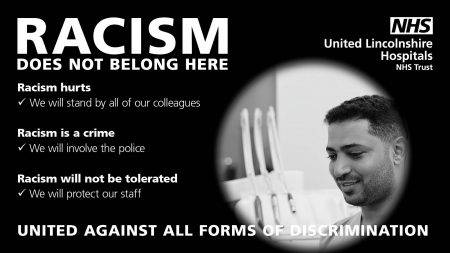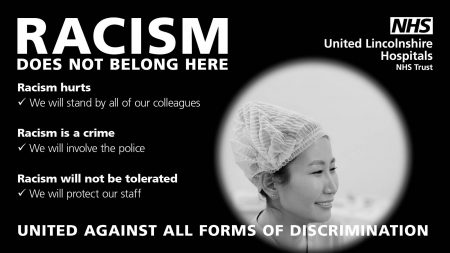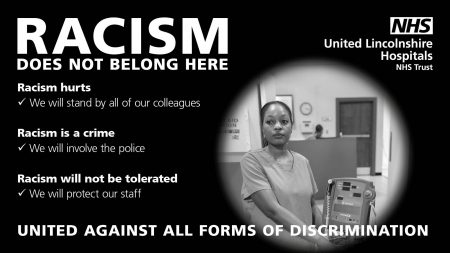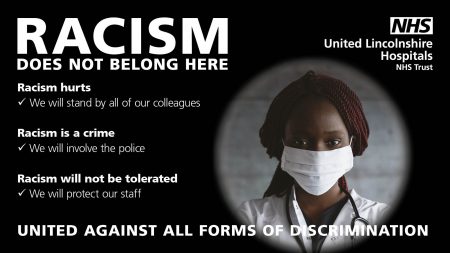Together, by calling out and addressing this behaviour, we can stand united against all forms of discrimination.
Lincolnshire’s hospitals are taking a stand against racist behaviour directed at its staff with the launch of a new campaign and strategy.
United Lincolnshire Hospitals NHS Trust have launched the campaign after a growing number of racist incidents have been recorded.
Over the last year, sadly 27 incidents of discrimination against staff have been officially-reported, with 25 of these being race-related. The Trust’s latest National Staff Survey results also clearly show that some colleagues are significantly more likely to experience discrimination than their English, Welsh, Scottish, British or Northern Irish counterparts.
Andrew Morgan, Chief Executive said, “In order for our staff to be able to provide the best possible care to patients, we need to make sure that our teams are protected from racism, and any other form of unlawful discrimination, whilst they are at work. We are an inclusive employer and we are proud of our highly skilled colleagues who have a range of diverse backgrounds. Racism will not be tolerated in our hospitals.
“We also know that some instances include colleague-on-colleague racism, which is equally unacceptable. Racism is not excused in our hospitals, whether from a patient, visitor or fellow colleague.”
The Trust’s anti-racism strategy outlines a range of measures to ensure that staff feel protected and supported including education and training for the wider organisation.
Along with the strategy, the Trust is also launching a series of posters and graphics to empower them to speak up and take a stand against racial abuse from patients or visitors.
Paige Pennant, Flow Co-ordinator and Vice-Chair of the Trust’s BAME network said: “We are extremely proud of our diverse workforce, which includes colleagues from more than 20 different countries. Together we deliver outstanding care and services to our local community.
“We are committed to making ULHT a great place to work and receive care, and this strategy supports colleagues who experience racism. It is vital that they know that they are listened to and we will support and work with them to combat any racist behaviour in our hospitals.
“We also recognise that colleagues sometimes face racist behaviour from other colleagues, and this strategy applies equally to them. This is unacceptable behaviour which we will not tolerate in our hospitals.”




